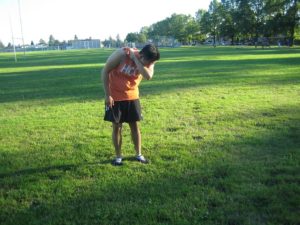The tree pollen is widespread during springtime and can trigger symptoms among sensitive individuals.
The usual culprits are pollen from wind-pollinating trees, especially during the spring season. Depending on where an individual resides, some of the trees that are considered as potential allergens include:
- Birch
- Hickory
- Elm
- Oak
- Beech
- Ash
- Maple
- Sycamore
The indications of tree pollen allergy are strikingly the same as other seasonal allergies. - Cottonwood
What are the signs?
The indications of tree pollen allergy are strikingly the same as other seasonal allergies. The signs typically include:
- Runny nose
- Nasal congestion
- Postnasal drip
- Itchy watery eyes
- Sneezing
The individual might also experience tiredness and headaches. This allergy can trigger asthma attacks and cause increased frequency in wheezing or coughing.
Management of tree pollen allergy
There are some measures that can help manage the symptoms of tree pollen allergy:
- If diagnosed with tree pollen allergy, medications must be taken a few weeks before the season. This can help mediate the symptoms even before the season starts.
- Immunotherapy or allergy shots involves the administration of small amounts of allergen to allow the immune system to establish tolerance.
- Intranasal steroids are considered more effective than the over-the-counter antihistamines. The nasal spray can also ease the eye symptoms.
- Antihistamine eye drops can be used to manage watery and itchy eyes.
Preventive measures
There are ways to lessen exposure to the tree pollen to reduce the severity of the symptoms such as:
- Limit any outdoor activities in the early morning hours specifically from 5 AM to 10 AM.
- While driving, the windows of the vehicle must be closed to prevent entry of pollen
- Do not hang laundry outdoors to dry.
- After spending time outdoors, shower and change clothes right away.
- Do not go outdoors if the pollen is at its peak.

